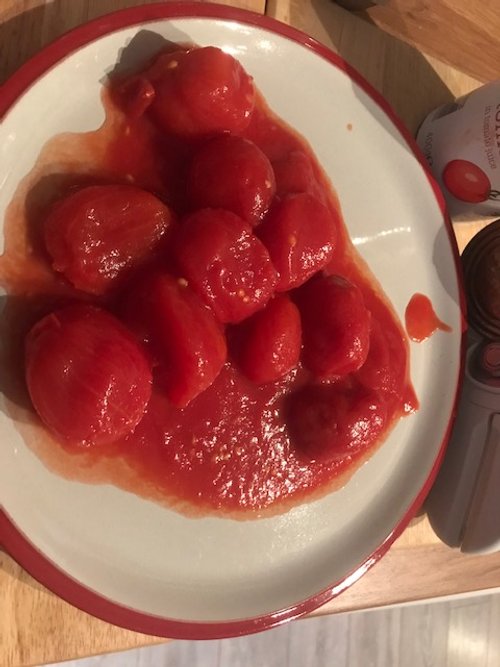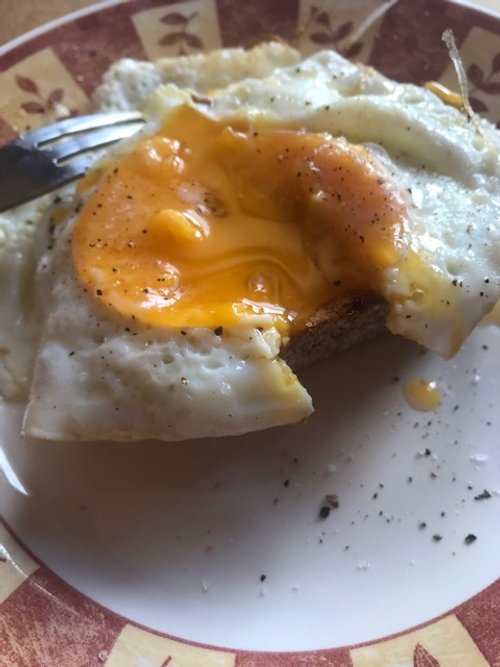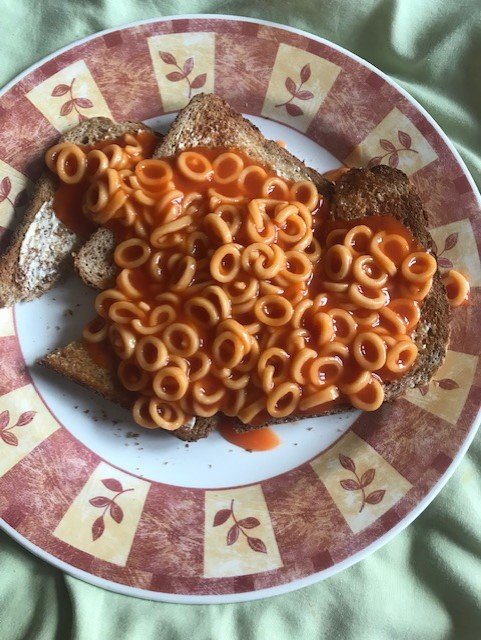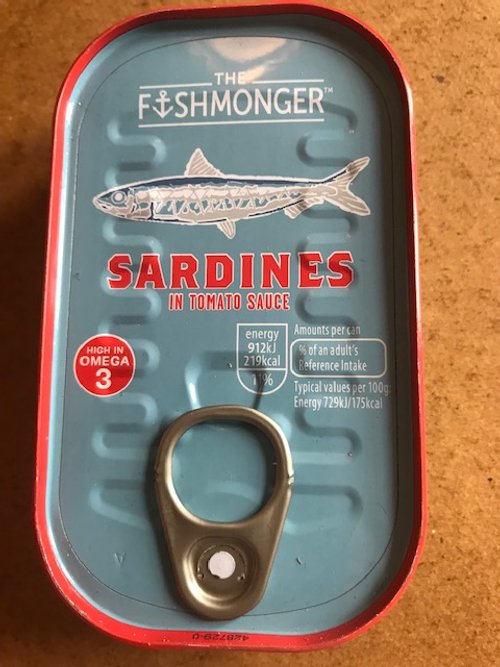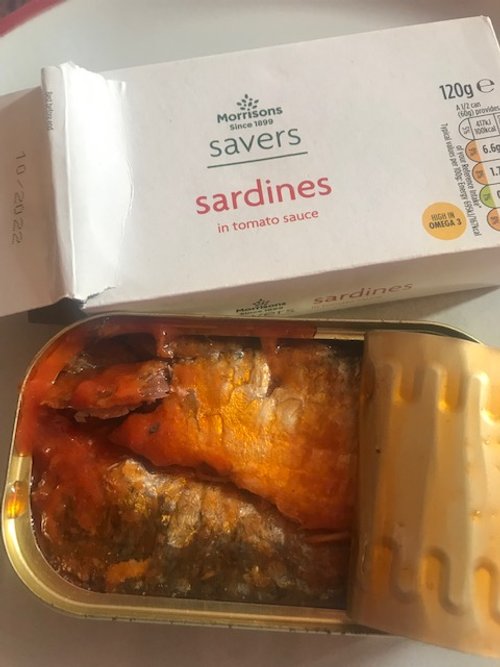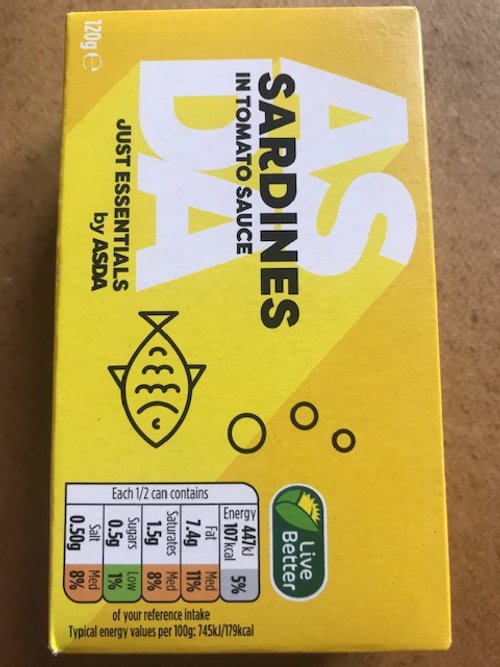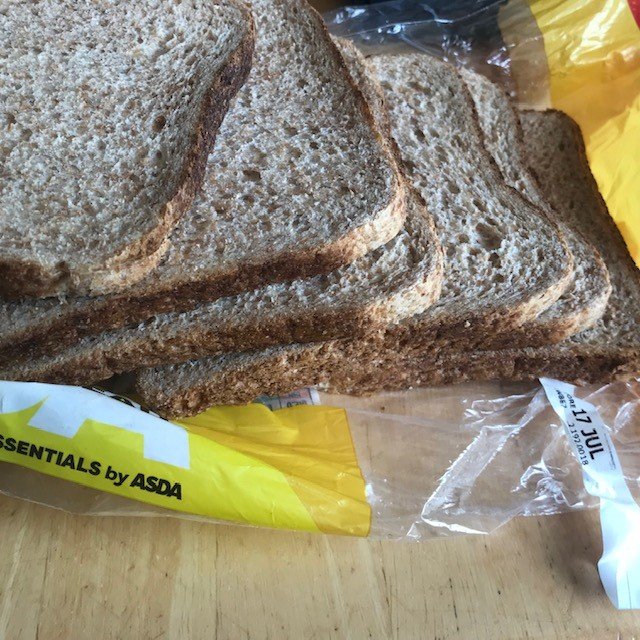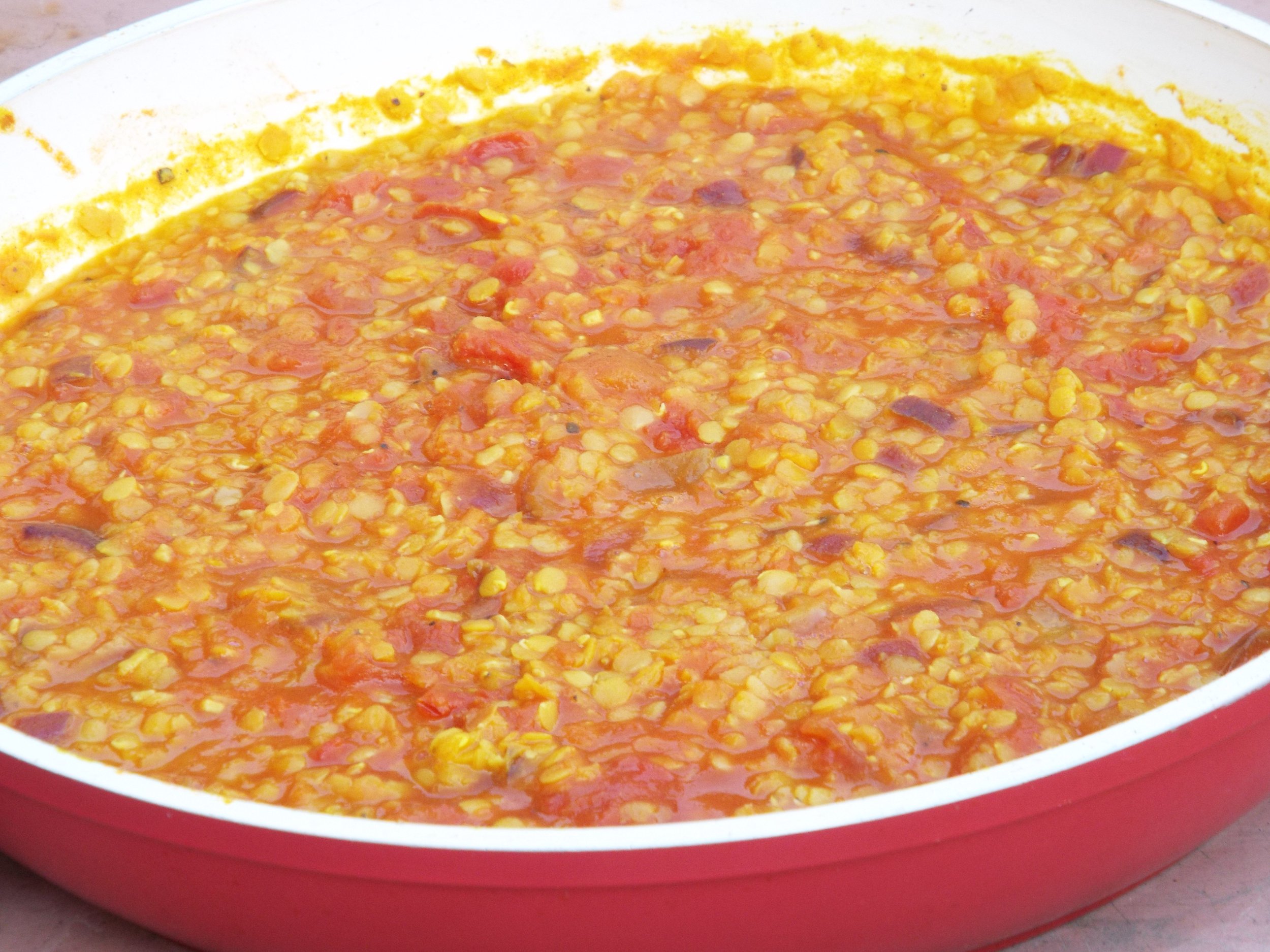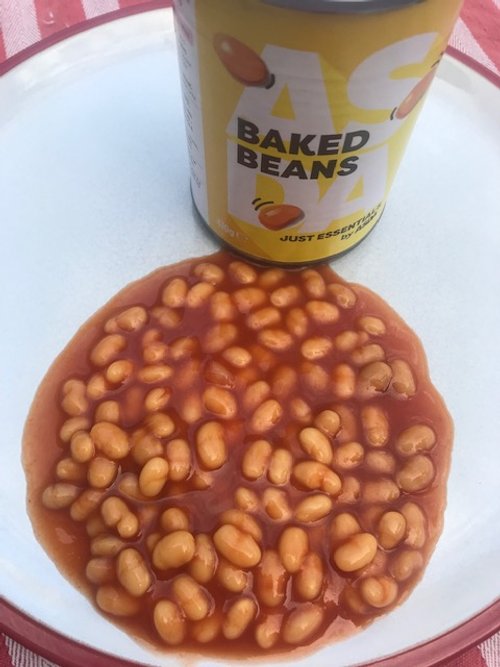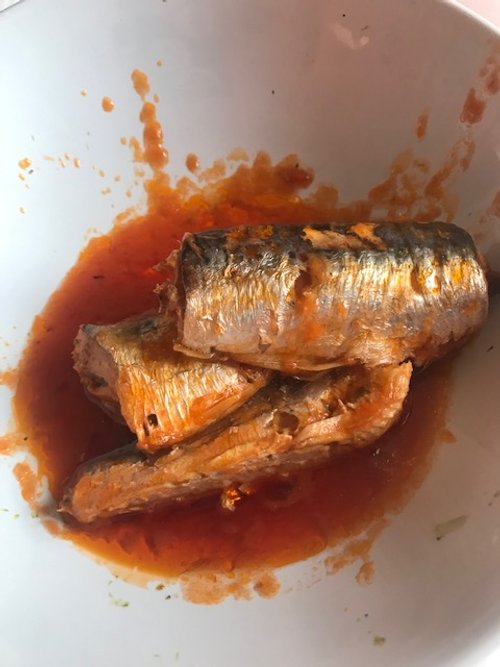Food is political. ‘Lee’s 30p meals’ still occasionally trends on Twitter. Sometimes it’s ‘Lee’s 10p meals’. Lee Anderson - quite a big fella himself - is the daftie Conservative MP who decided that the British people could live on meals that cost just 30 pennies per person. Apparently he saw it done at a food bank kitchen - completely ignoring the facts of food donations, the massive aconomies of scale and the energy costs - and now he has visions of the impoverished doing the same.
Student or budget setter, cook or parent, this is the new narrative of aspiration. Trouble is, ‘30p Lee’ is an idiot.
Food Insecurities
While food costs continue to soar in the UK, availability of the cheapest ranges of food declines. By the time I’ve finished writing this blog piece, who knows what will have gone up in price. Bread? Beans? What will customers be told is now ‘out of stock’ or being rationed? Eggs? Potatoes? How would Lee’s pronouncement stack up against feeding students and volunteers during fieldwork projects with tight budgets?
“Lower incomes constrain people in all sorts of ways, none of them good”
A single egg now costs anywhere between 10p (laid by unhappy caged hens) to 45p (run free, my pretty birds). The cheapest bag of minced beef and onion that I found in any supermarket, suitable for feeding something approximately a cottage pie to six people, was £2.65; and I doubt the welfare standards in its production are anything to boast about. Even using half a bag and padding it out with lentils or oats wouldn’t work once you’ve factored in the other ingredients (peas or carrots and potatoes at a minimum, presumably), the cooking costs, and that thing called reality. (And see ‘Hidden Costs’ below.) So sod off, Lee.
I mean, is it even possible to make any ‘meals’ for 30p per plate, let alone for students and volunteers in a fieldwork environment where budgets for catering are now incredibly stretched, and people are understandably hungry after a day’s work?
Endless cheapo meals are hardly a diet designed for the long haul of raising children or feeding young adults in a healthy way, or for adults trying to stay in decent shape mentally and physically. The idea that cheap meals can be magically healthy - it’s always bloody lentils - also presupposes a capacity for buying, storing and cooking that many students and fieldwork kitchens just don’t have, and/or that people will be OK with a greater use of plastic packaging and lower welfare standards in the production of eggs, milk and meat, and that that they live in social conditions where they can take advantage of economies of scale. Lower incomes constrain people in all sorts of ways, none of them good.
“ … these things are not cheap any more - they haven’t been for years”
Many ‘cheap meal’ suggestions that bounce around online tend to involve either expensive cooking methods (‘popping’ jacket potatoes in the oven for 60 minutes or braising tough ‘cheaper’ cuts of meat on the hob for 3 hours). Or ‘just buy a slow cooker’. Always with the ‘popping’ and ‘plopping’ and the verdicts of ‘scrummy and so nutitious!’
Other suggestions I’ve seen have lazily, crazily outdated assumptions about the affordability of things like Spam, corned beef, breast of lamb, pork belly and slow-cooked shin of beef. And more Spam. Guys, these things are not cheap any more - they haven’t been for years.
Even the cheapest fish products don’t come cheap. Not ‘Lee Anderson cheap’ anyway. A tin of value sardines in Aldi is currently 39p for a very small tin; 37p in Asda; and Morrisons basics range sardines are a similar price if you can find them. Asda Essentials range tuna is 55p. These tins are pretty much one serving for actual adult students and volunteers, and would need to be eaten alongside other food like pasta, rice and/or daal.
“Students and volunteers need to be fed properly … they have a lot going on”
And many of our students and volunteers don’t want to eat animal products. Or have dietary stuff going on, health-wise or sensory-wise.
Often suggestions for eating cheaply involve bulk buying and cooking that are unrealistic for fieldwork projects and participants on the bones of their arses with both food and fuel costs. A lot of fieldwork modules are now asking students to self-cater, sometimes for two or three weeks, staying in some pretty basic digs, with little to no money to play with, and without access to range cookers, chest freezers, slow cookers and air fryers.
Students have a lot going on; and it’s unfair to pretend to ourselves that they, and volunteers, can cater for themselves cheaply and somehow eat well for days on end. I’ve been on fieldwork expeditions as a younger archaeologist where the director and senior staff would disappear in the evenings to go to eat elsewhere while the fieldworkers were on subsistence - I thought this poor form. Students and volunteers need to be fed properly.
Small meals-on-toast and lentils it is, then
But Lee Anderson MP’s budget leaves us looking mournfully at meals-on-toast or lentils-with-rice / bread / spuds / noodles. As I eat this stuff myself for laziness various reasons, I’ve decided to price a few up and review a range, using a bog-standard ordinary local supermarket for the ingredients.
It’s important to include: the cost of the toast; the spread on the toast; the topping; and the fuel costs to make the toast and heat / cook the topping. There are also hidden costs to consider.
Also noteworthy is that tins (cans) of approx 400-420g) are considered to be two servings. (Not on an archaeological dig they’re not …)
Toast. A Little Bit Of Toast.
I want to talk about toast for a minute because it forms the basis of so many cheap meal ideas on social media. ‘Just bung an egg or beans on some toast, the kids will love it,’ is a the kind of thing I see a lot of. But even a couple of slices of cheap toast isn’t cost-free. Obviously.
Supermarkets’ basic wholemeal sliced loaves probably provide maximum nutritional value (at 39p a loaf, currently) within Lee Anderson’s elusive 30p meal price window.
So how much are we looking at?
Two slices of bread @ 3.5p each = 7p
Cost to toast = minimum 3p.
Spread on toast = 4p
So that’s already at least 14p for the cheapest-of-the-cheap before the frugal half-a-can topping in our MP’s fevered imagination gets warmed up and bunged on top. And the only portions of-a-can that come in within budget are spaghetti loops and a couple of tinned tomatoes from basics ranges. That’s it. Spagetti loops or tomatoes on toast. Or one egg on toast, from the cheaper, degrading end of the range.
Energy (Fuel) Costs
It costs around 3p (and rising) to zap something like beans and tinned spaghetti in the microwave for a minute, and 3 - 7p to boil a kettle, and now around 4p for very quickly frying eggs or some sliced mushrooms, so we have to bear this in mind.
There are a number of websites, apps and calculators now available for free that give the costs of running different appliances, from ovens and hobs to dishwashers and combi boilers. To cook you have to be able to see, i.e. keep the lights on; and some cookers have automatic extractor fans that kick in when the oven or grill are turned on and stay on for a while after they’re turned off.
One of the criticisms of Jamie Oliver’s latest TV outing Jamie’s £1 Wonders is that he hasn’t factored in the costs of cooking the food and doing the washing up. And what about washing his chicken-juice infested tea-towels? Will nobody think of the tea-towels?
Hidden Costs
Poor old Jamie Oliver also needs to take the criticism on the chin that his £1-a-person dinner show doesn’t take into account getting to the supermarket in the first place. If you need to use a bus, tram or car, that costs money. If you need an online delivery, that costs money.
Ideas like ‘Lee’s 30p meals’ never seem to factor in the cost of hot water for washing up crockery, cutlery, pots and pans; or the rip-off additional costs for people on pre-payment meters; or the costs of running and fridge or freezer; or the fact that having salt and pepper, tomato ketchup, mayo, mustard, dried herbs or spices, costs money.
These ideas and programmes also assume people have at least a hob or an efficient microwave. They assume people have a kettle. A tin opener. Dexterity. They don’t take into account single adults buying smaller amounts of food such as small loaves and small tins to avoid wasteage, and that the much smaller versions cost nearly as much as the larger ones. Men like Lee Anderson seem to forget that other men working hard in physical roles need more than three x 30p meals a day - they need over 3,000 calories that doesn’t mostly consist of ultra-processed crap. The whole proposal is unhinged.
And such a schema certainly doesn’t build in the health costs of people having to eat and live like this long-term, of having to eat crap and sugar and salt and palm oil and low welfare animal products in repetetive meals devoid of the variety of fruit, vegetables, fibres and proteins that MPs and celebrities can claim on expenses.
There are no 30 pence ‘meals’. And there’s definitely nae puddin’.
…………………
More in my next blog post(s). I’ll be costing up cheap meals based on toast, and lentils, and rice, and potatoes, and noodles. Things are tough right now.

